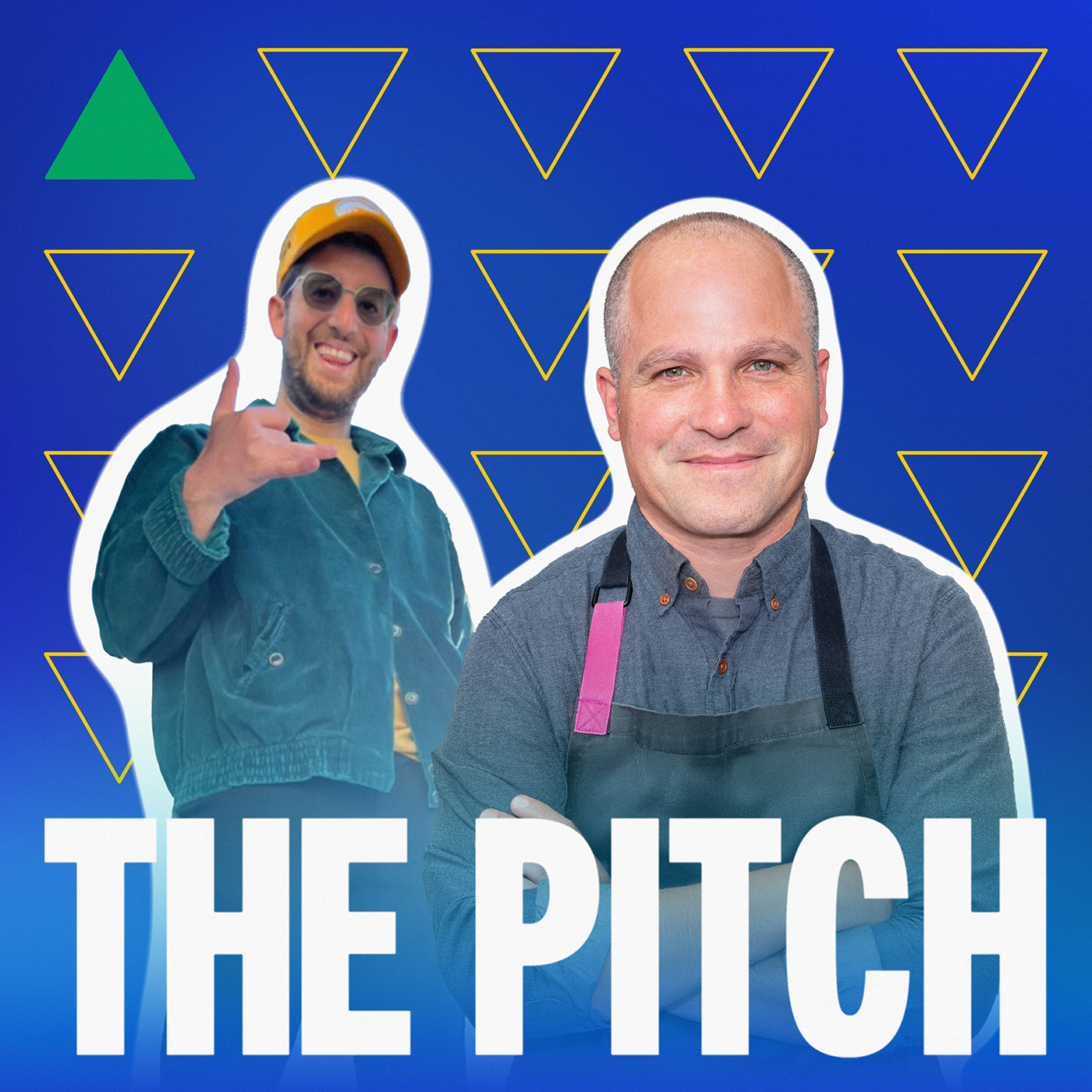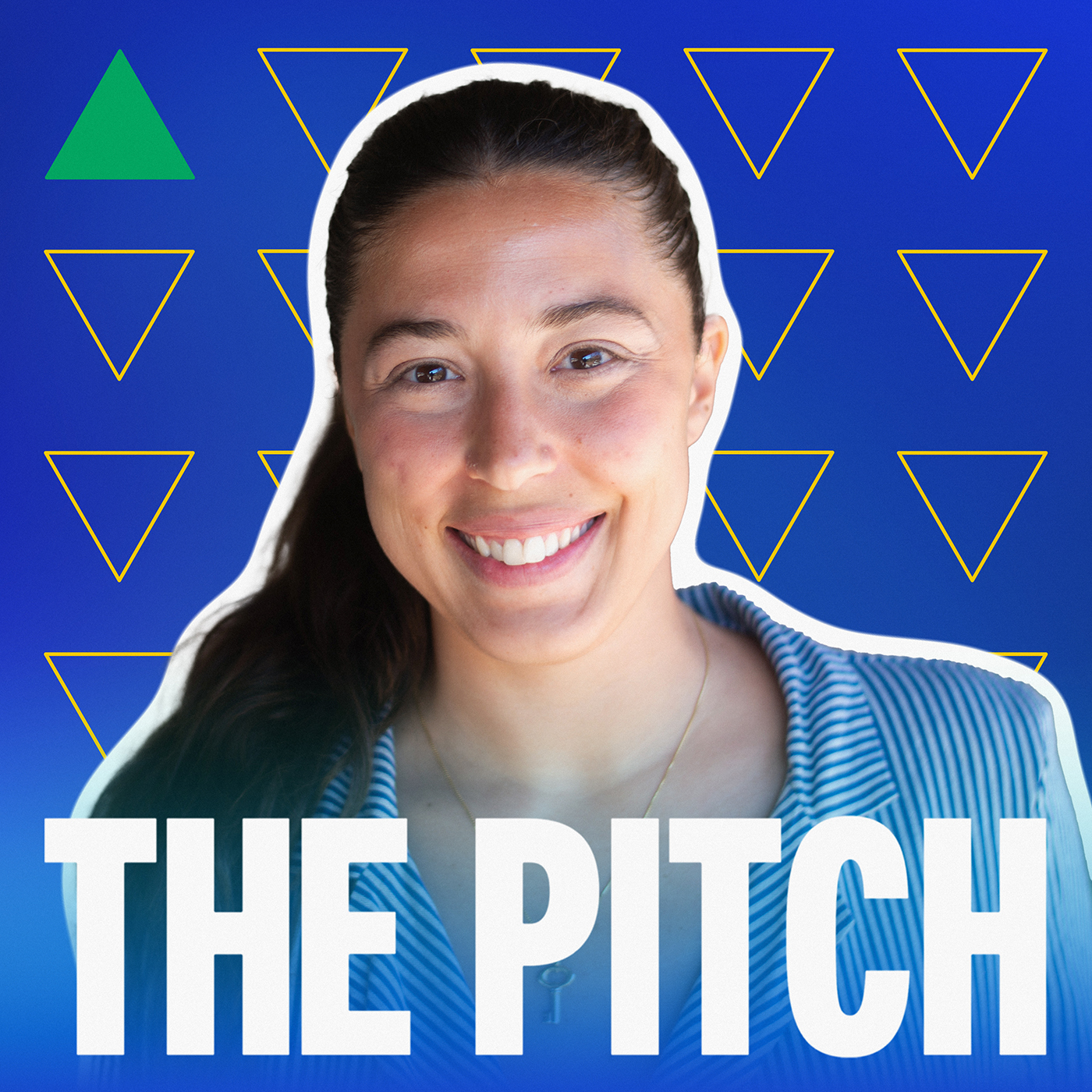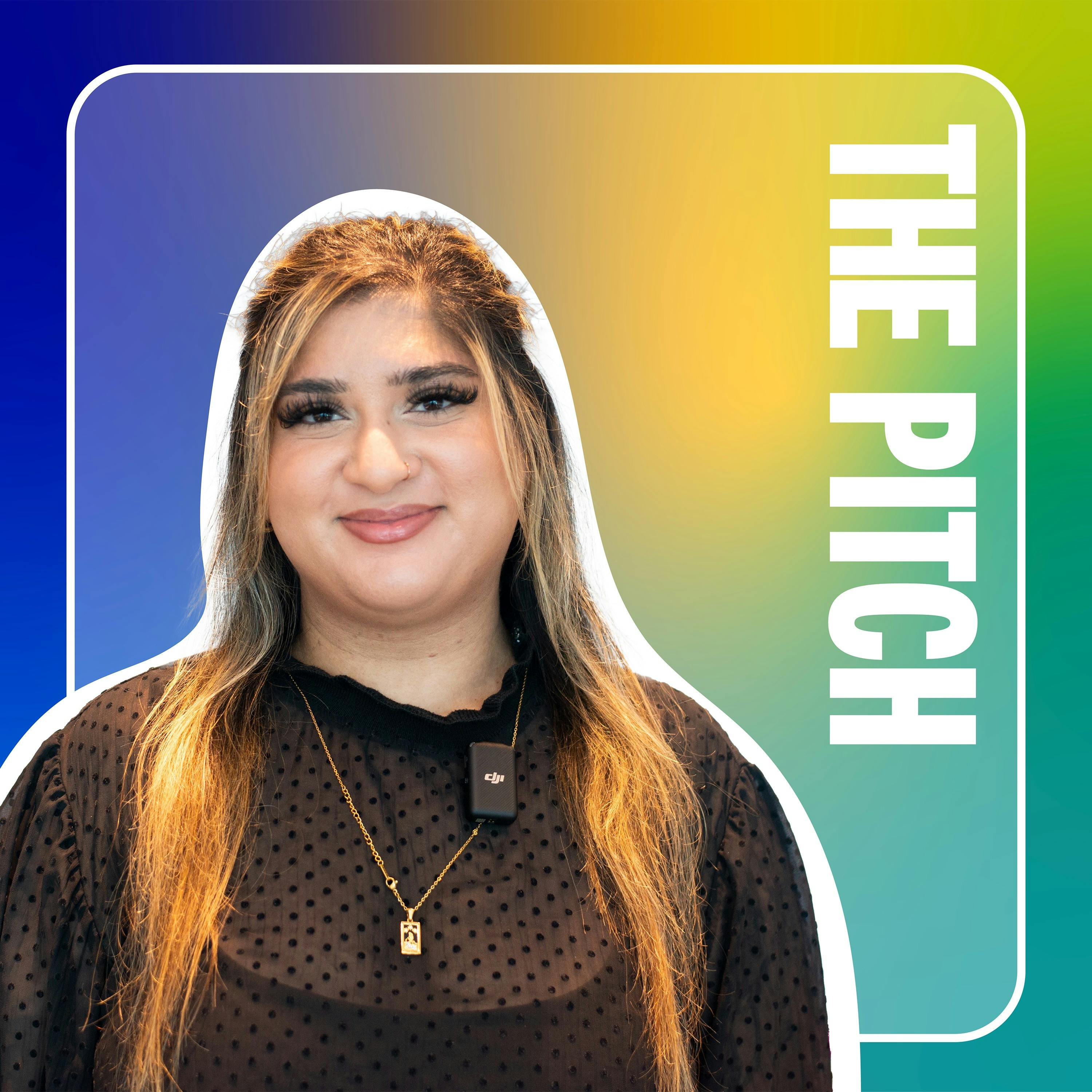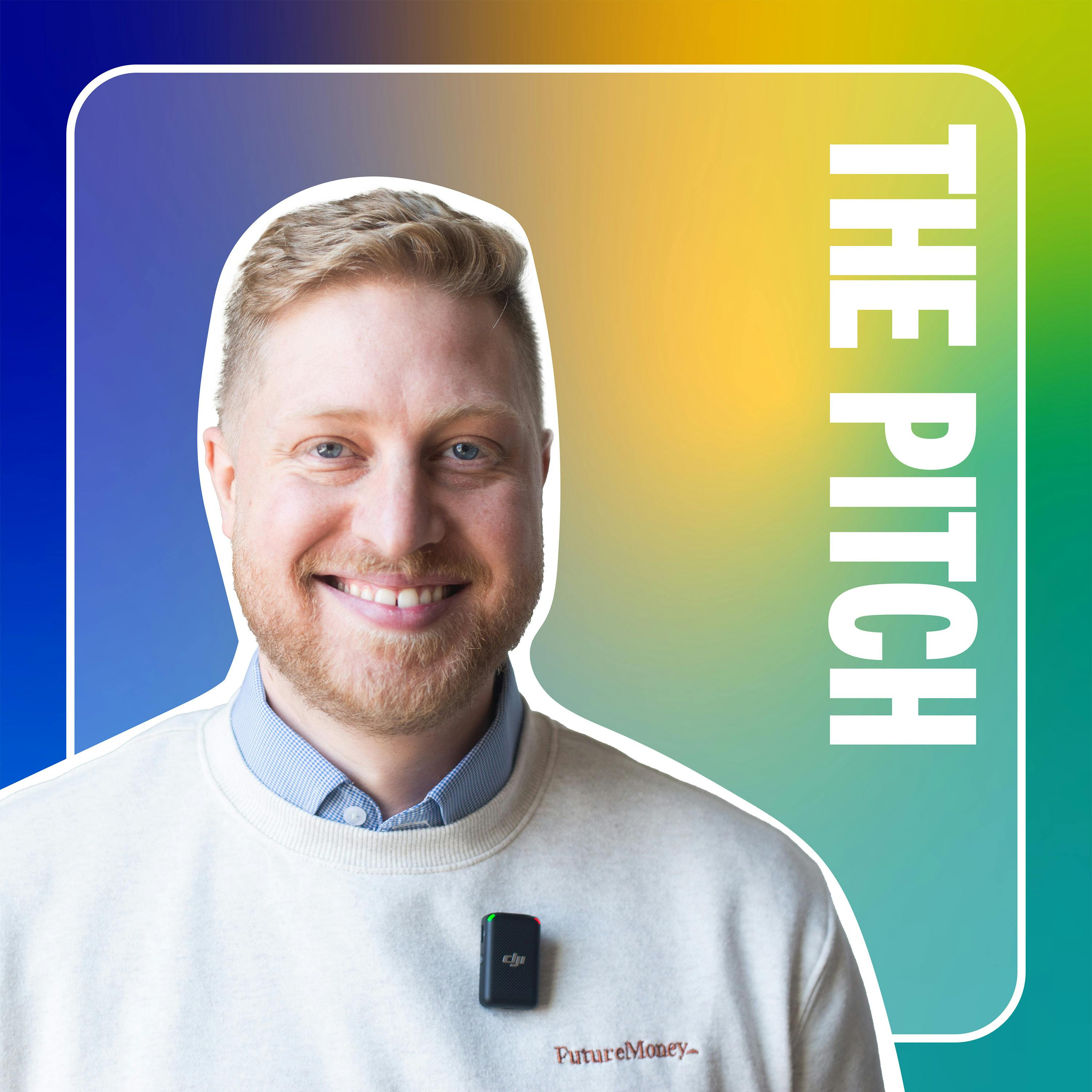#99 The Friends & Family Gap

In VC, before you pitch investors, you’re expected to get some initial cash from friends and family. Getting this money is a critical first step for a new startup. But what if your friends and family aren’t wealthy? Two founders tell us what that experience is like, and how it’s shaped the way VC investors view their companies.
Enoying the show? Use this link to text a friend!
I’m Josh Muccio. And this is The Pitch.
When a founder first starts looking for money, they're not knocking on VCs’ doors right away. Usually, they start much closer to home. With friends and family. It's the real seed funding a startup gets. And it comes at a crucial time - when you're just starting out.
Josh: Charles, what's the deal with this friends and family thing?
Charles: To me, friends and family, generally, I think of it, it's like a, it's like a freedom license. It means you can go work on your company full time.
That’s investor Charles Hudson. Now we hear about this round a lot on the show. Investors will casually ask a founder, How much from friends and family? And they'll say maybe $50,000 or $100,000. That early money, it’s kind of taken for granted. But what if you don’t have access to that kind of wealth? No rich uncle or fancy friends.
On today’s episode, two stories of entrepreneurs who’ve experienced this struggle directly. And it turns out, the friends and family round can have far-reaching consequences for your business, and your ability to raise VC.
All that’s coming up after the break.
[BREAK]
Welcome back. Farah Allen is CEO and co-founder of a startup called The Labz. It’s an online tool that helps producers, musicians and filmmakers collaborate when they can’t be in the same place.
She started her company in Georgia in 2018.
Farah: It was very hard for me to ask my friends and family for money. It was something that I had to really think hard about because my family and friends, they are working people, they're working class people.
Farah recently talked to producer Heather Rogers, and told her that she doesn’t come from a family with generational wealth.
Farah: I grew up in Miami, Florida. And my family are Jamaican immigrants. My mom actually came to Miami to be a nurse. And my mom doesn't, still probably doesn't know what I do. This isn't real estate.
Heather: What do you mean this isn't real estate?
Farah: She, people normally invest in, like, real estate or tangible things. So I had to ultimately teach her about investing in companies and what that looks like over time.
Heather: Yeah.
Farah: And I had to do that for everyone that invested.
Heather: So you had to do two things. You had to explain why a person would even invest in a startup. And then you had to say, and you should invest in mine.
Farah: Yeah, I'd had to do all of that.
Charles: If you zoom out and you think about it, investing in companies is really different than anything else.
That’s investor Charles Hudson again.
Charles: Real estate, so you, you buy the building and then the tenants pay you every month. So you feel like you're getting something along the way. And in private companies, there's no dividends. So you put the money in. And then in theory, the company’s notionally more valuable over time. But there's nothing you can do with it. You can't spend that money. You can't borrow against it for the most part.
Josh: Yeah.
Charles: And I can't think of many, even your home, if your home goes up in value and you want to take some of that value out, you can do that.
Josh: You can get a home equity loan. Yeah.
Charles: Yeah. This is like an ATM with, like, no card slot. Like you can see the balance but you can't take the money out. And I think it's worth people thinking about how weird it is to ask somebody to invest in something like that.
At first, Farah didn't even go to friends and family, instead she applied to an accelerator sponsored by Comcast. And she got in. They gave her $20,000.
That’s when she decided to quit her job and work on The Labz full time. Because Farah was convinced she'd get even more funding at the end of that accelerator, when she showed off her company to VC investors at demo day. But when demo day came, she didn’t get a single bite. No investment.
At that point, Farah felt like she had no other choice but to ask her family for money. And part of her pitch to them was to show them the presentation she gave at the accelerator.
Farah: The demo demo day worked in the sense that I had a video that I can show my family and friends that I was on stage. And they recognized that look. They recognized it and TED talks. And...
Heather: Uh huh.
Farah: ...so it was, it was like I was real now.
Her mom invested. $5,000. Her sister and an uncle chipped in and two other family friends. In total she got $30,000, not enough for a founder to draw a salary. So she had to figure out ways to make that money last.
Farah: We have a four bedroom house in Atlanta. So at first we did Airbnb.
Heather: You would rent it out for how much?
Farah: Five hundred dollars a night.
Heather: Uh huh.
Farah: So I would pack up my kids and we'll Airbnb somewhere next to their school for like $100 a night.
Heather: Wow.
Farah: Of course you don't want to uproot your kids and make them do these weird things, like moving around to other houses. That’s not what you want. That's like a nightmare for parents.
Heather: Yeah.
Farah: You don’t want to uproot your kids. And I didn’t want to share my house. I really, that wasn't anything I did want to do.
Heather: Yeah.
Farah: But it was the asset that I had in order to trade for money.
She did other things to make ends meet too. Like cutting living expenses and relying on credit cards. And as far as building the business itself, Farah had to get scrappy there too.
Farah: We had one developer and I couldn't afford to pay him. This was strictly equity driven. And he was very, very smart. But it wasn't fast enough at the speed we were trying to complete our milestones.
Heather: Why wasn't it fast enough?
Farah: He wasn't able to work on it full time. He literally could only spend about 10 hours a week.
Heather: Cause he had like a day job?
Farah: Yes. And he kept missing deadlines.
Heather: Mm hmm.
Farah: And the promise of raising, those months were closing in. And the opportunity, time was running out.
Farah let that developer go. Instead she worked with an offshore firm. Which turned out to be a lucky move. The owner of that firm believed in what she was doing, so much that he decided to let her run a tab while his engineers continued building out her product.
Then another big break came -- she got into an accelerator that gave her $200,000. And within six months, she was able to formally launch The Labz.
So, Farah got it done eventually. She told Heather that not having a big enough friends and family round at the outset meant that it took a whole extra year to get her product built. And when she went to pitch VCs, it was like her insufficient friends and family round was this ghost that kept haunting her.
Heather: That initial slowness, did that affect the amount of money that you have been able to raise from VCs?
Farah: I have plenty of investors point that out. You should be further along than you are from when you started.
Heather: Yeah.
Farah: And it was always something I was missing.
Heather: Yeah.
Farah: Either technology, the customers. If I had the customers, I was missing the actual revenue. Then I got some revenue. I was missing something.
Heather: Mm hmm.
Farah: And I'm like, Well, you know, I built a million dollar platform, right? And I've only raised $100,000. And they're like, Well, I don't know what to do with that information because I can, all I can ask for right now is your monthly, your MRR.
Farah still to this day hasn't gotten any money from VCs. She hasn't been able to give them what they seem to want. Even though she's hitting some key milestones, investors still see her as moving too slow. And Charles Hudson knows what this is like for founders.
Charles: This is like the pattern that I see, which is it's like this negative feedback loop Where you don't have the money so you can't hire people. So you don't make that much progress. And so then you go to raise money and everyone says, well you’ve been working on this for a year. But you don't have the product done. This company is not that efficient. It feels slow because they're judging you against companies that have been working full time for a year.
Josh: Right.
Charles: And it's kind of like death by a thousand cuts. Like, you miss your product deadline. So it doesn't, the product doesn't go live. And because it's taking you so long, you never get the feedback loop of, Wow, we launched our product. And people love it! Which is super energizing for startups.
Josh: Right.
Charles: I mean, going at half speed relative to, like, what you do full speed, it just puts this tax on the whole company. It just feels like you're not making progress. And the reason why is because you're not.
Josh: What is it exactly that investors don't like about a founder who's moving slower?
Charles: I think the underlying concern for investors is a company that's already slow. The question is, are they slow because they're slow? Like, they're just not good at making decisions. They don't like, respond to information quickly. Are they slow for that reason? Or are they slow due to a lack of capital? And the money will literally unlock and unblock them.
Josh: Right.
Charles: And I think a lot of investors are sort of like, well, my experience has been companies that are slow without capital, continue to work slow. So, like native velocity is part of what they're screening for it.
Josh: Hmm. Is that a messed up thing to screen for, like, does that need to be adjusted?
Charles: I think the issue is if you're an investor who assumes that everybody has friends and family money available to them, it's actually rational to assume that everybody you meet should be working on their company full time. And be all in. Because in a world where everybody can raise, let's call it one hundred thousand dollars from friends and family, there's really no reason not to be all in on your own startup. If that's really what you want to do.
Josh: Hmm.
Charles: Now, if we live in the real world, where not everybody has access to this. If you, as an investor, expect every founder you meet to be in a position to drop everything and just work on their startup for some arbitrary period of time as a show of commitment.
Josh: Yeah.
Charles: You're going to end up excluding people who, for really valid financial reasons, cannot do that.
Josh: So it's like if you have access to friends and family, you're already at an advantage from the start.
Charles: For a lot of people, you can't just go work on your startup for a year with no pay or with no resources, like most, most people in America are not in a position to do that.
When it comes to generational wealth, most of the people in the US who have it are white. For every dollar in wealth that white families have, Black families have just 15 cents. It’s a tiny bit less bad for Latinx families, but still there's a big gap. And when you look at what VCs do with their money. Just 1 percent of it goes to Black founders. So not only do Black founders like Farah sometimes struggle with finding friends and family money, venture capital can be even harder to come by.
Josh: And this is how the, like, the startup world is made up mostly of people who are white and wealthy gets perpetuated to the next generation?
Charles: Yeah. I mean, that’s like statistically it's true. I mean.
Josh: Yeah.
Charles: Statistically it’s like. It's true. And if all the companies you invest in that are successful, the founders quit their jobs and self-financed, you could say this is a success pattern.
Josh: Mm hmm.
Charles: Like the best companies you've invested in look like this. Like this is what the founders did.
Josh: Yeah.
Charles: It doesn't tell you like the companies that you didn't invest in, like what would have happened or the ones who never approached you that were successful differently. Like none of that comes up.
As for Farah, she is finding success in a different way. Even though she hasn’t cracked the VC system, she has gotten a big investment. A film and theater production company recently gave Farah a 7-figure check. She’s even pulled in some angel money too.
And Farah says having that cash has made a huge difference.
Farah: Today we've raised $1.5 million. And the opportunity is there for us to accelerate growth in a way we've never been able to do before.
Farah’s story sheds light on a lot of the assumptions that investors make about founders. Clearly the VC system isn't a meritocracy. You can work within it, knocking on doors, following the rules. But the best ideas don't necessarily rise to the top and get the funding they deserve.
And yet, some founders, they figure out how to take this system that’s designed to leave them out, and find a backdoor in.
That’s coming up, after this.
[BREAK]
Welcome back.
So, the VC system has insiders and outsiders. And that divide is directly connected to how much money you have access to.
Demetrius: I am a fifth generation Kentuckian. I can trace myself back to Gray Farm Road and Trig County, Kentucky, where my great great great grandfather was a slave there.
That’s startup founder Demetrius Gray. And his experience with family wealth, well there’s a bit of whiplash there. He talked with Heather Rogers about it.
Demetrius: And my mom had me as a single mother. And what sort of transformed that was she met this white guy from California in Kentucky, who came from a wealthy family. And they got married and I was adopted by that family. And it sort of transformed us moving from the projects into pretty nice luxury, you know.
Heather: Mm hmm.
Demetrius: But there was a little bit of tragedy because eventually my parents divorced. And that was the moment in which for us things changed. At, at that time I was in the eighth grade and very quickly we moved back into the projects.
Heather: Wow.
Demetrius: Yeah, yeah. That was the only other alternative. And um...
Heather: That's a really big change.
Demetrius: It was. It was. And this huge departure. And one of those things that certainly gave me a glimpse in between, like, the two things firsthand. And certainly one was better than the other.
So Demetrius caught a glimpse of what generational wealth looks like, and he wanted that for himself. So a couple decades later when an idea for a startup hit him, he was ready to take the leap.
He was working for a company that repaired roofs after a severe weather incident like hail storms or hurricanes. And his idea was to create an app that detects property damage on homes remotely, so that your insurance company can reimburse you for repairs faster than they otherwise would. It’s a classic “bring new tech to a rusty old industry” move. When Demetrius decided to start his company, Weathercheck, he knew his friends and family didn't have the kind of money to make a risky investment. But he did have some savings of his own.
Demetrius: $25,000 was the amount of money that my wife and I had said, this is what we've got to really do this thing.
Heather: Mm hmm.
Demetrius: And, you know, that $25,000 came and went. You know, like I think it was gone in six months.
Heather: Right. What was the next thing you did to try to get funding?
Demetrius: We started applying for awards because that's where we see the dollars. And so that's how we start trying to fund the company. So like, Hey, this competition has $5,000, this competition has $10,000. This competition at $75,000. We just applied for every single one that we thought might potentially have a chance of us winning. And we started winning. Our first was for $75,000. And then subsequent to that, we then won another $20,000 grant. And it started to become clear that, OK, there's something here enough that we can start taking more financial risk without feeling like we were gonna end up destitute.
Heather: OK. So you got almost a hundred thousand dollars from the first two competitions you won.
Demetrius: Yes.
Heather: That seems like a great start. Right?
Demetrius: But it was paid when paid. Meaning that you won the grant but you had to spend $75,000 to get the benefit of the $75,000.
Heather: Oh really?
Demetrius: Yep. So it didn't really solve anything for us. We just had it.
Heather: Did you know that it was paid when paid?
Demetrius: No! I had no clue. I thought they were gonna hand me $75,000.
Heather: So it’s like, you kind of, like, needed money to get money.
Demetrius: Yep. That’s exactly what it was like.
Demetrius needed to find a way to keep Weathercheck moving forward and unlock that money. So he and his cofounder, Jermaine Watkins came up with another idea: going to hackathons.
Let’s talk about developers for a second. In the world of startups, they’re one of the most sought after resources, they're expensive, they're hard to get. And when you’re crashing on your product, you can move a lot faster if you have a team of them. So Demetrius, he got real creative. He figured out that he could use developers at hackathons to build his product faster.
Demetrius: So Jermaine and I would go. And then you'd recruit to the team. And so you got free labor for the weekend. Then if everybody on the team had done what they were supposed to do, you won.
Heather: Uh huh.
Demetrius: You know.
Heather: Uh huh.
Demetrius: And so, we started winning.
Heather: So you hacked hackathons?
Demetrius: Yep. [Laughs]
And he continued his hackathon hacking, innovation competition winning tour, until finally, about a year in, they snagged their first angel investor.
Demetrius: We won this Vote Innovation Award in Louisville. I think it was $20,000 or $25,000. And at the demo day, investors are walking around. I didn't really think there was any real investors there. But I had gotten word that there was one guy who is making investments in some other companies. And I just flat out walked up to him and I said, Hey, I hear you're the guy that's handing out all the money.
Heather: [laughs]
Demetrius: He said, Well, not quite, but what you got?
Heather: Uh huh.
Demetrius: And so, you know, I eventually started to disclose to him what we were working on. And that was our first $100,000 check.
That check finally unlocked that initial prize money, that $95k that had been sitting there waiting for him for a year. With that cash, Demetrius was off to the races.
But he says not having a friends and family round in the beginning did slow him down. Like Farah from earlier in the episode, he didn’t have the money to move fast and, you know, break things. But Demetrius still had one more trick up his sleeve… accelerators.
Demetrius: Part of our internal strategy is using accelerators to get the customers.
Heather: Can you talk about that?
Demetrius: Yeah. So we just recently entered into Google's First Inaugural Black Founder Accelerator. And you know, you're having direct conversations with the head of Google for startups and, chief of staff of this particular, YouTube and, you know, all of these different sort of divisions within this, you know, behemoth that otherwise wouldn't happen. And so for us, it is an open door that we are using to say, OK, we have a specific goal in mind and there's a contract that comes out of it.
Heather: So you're using accelerators not necessarily to get access to VC investment, but to get customers?
Demetrius: That's right. And so a lot of our growth has come specifically from implementing that strategy. I'm sort of letting the cat out of the bag a bit.
Heather: You’re totally letting the cat out of the bag.
Demetrius: Yeah. But it's, for me, like, I don't ever intend to come through the front door. I always come in through the back. It means that you're at home. That's the way I like to roll.
Heather: What do you mean it means that you're at home?
Demetrius: Well, you don't come in. Most people don't come in through the front door.
Heather: Ahh. Uh huh.
Demetrius: If you own the place, you always come in through back. I always, like, I always want to come through the back. I'm like, listen. I'm, like, in like Flynn. And that's exactly where I want to be.
And all this, it’s working. Between 2018 and 2019 the revenues at Weathercheck ballooned from $148,000 to $1.3 million. And then in the winter of 2019, they were accepted into Y Combinator. One of the most prestigious accelerator programs in the world.
At the end of Y Combinator, Demetrius raised a $900,000 seed round. $500,000 of which came from VC’s. But despite Demetrius landing that money, he still thinks the industry is pretty broken.
Demetrius: I don't have tons of confidence in VC. Like they have a track record and their track record speaks for itself. Nobody, it's not a secret. And so the onus is really on them to improve. You know, it's not on me to try to convince a VC that a Black founder is good enough. And you know like It doesn't mean that I'm gonna be limited as a result. Like, I, like we won't fail because I just won't, I won't let us.
Heather: Do you feel like you missed out by not getting a friends and family kind of style chunk at the beginning? Or do you feel like it's made your business stronger?
Demetrius: I just think that like, I would have preferred to have the former. Right. Anybody who's building a company would much rather have early capital to deal with figuring it out. However, I can't suggest that it hasn't made the company stronger because it has. It also means that I own more of the company than most founders ever do. And I think that's beneficial in the context of like, look, we will become a billion dollar company. And the byproduct is, is that I'm going to be super rich and Jermaine's gonna be super rich as a result. And us being super rich matters in the context of what we're trying to achieve globally.
By globall, Demetrius told Heather, he means there’s a larger purpose to getting rich. He can turn around and use that wealth to invest in the people and the businesses in his community, and in his own family.
And from the investor side of the table, Charles Hudson. He thinks about all the Farahs and Demetriuses out there who couldn’t find a way around the broken VC system.
Charles: I have no idea how many innovative, good ideas are not getting funded because we have this very, like thread-the-needle set of steps you have to go through to raise money. So I, my hunch is that there's at least an order of magnitude more people who should be getting a shot at entrepreneurship every year, who don't for reasons really only related to capital access. So I don't know what we're not getting out of the world in terms of, like, innovative products and services and not just software. It could be anything, could be climate change, could be hardware, could be public, could be nonprofit. Like, I don't, I just feel like the path to getting access to capital. It's better now than it used to be. But it's like we went from a one car, one lane road to a one lane road with like a little bit of a shoulder, like we need like a highway.
Josh: Yeah.
Charles: And not everybody should be an entrepreneur. But like, we're dramatically restricting the set of people who even get to try.
The conversation I had with Charles Hudson about this went much deeper. And we were only able to include a fraction of it in this episode. So we made a special episode where he and another one of these next generation VC’s, Elizabeth Yin, talk about what they’re doing to turn the tides of VC for the better. This special bonus episode is available to Pitch+ subscribers! The episode is titled “Disrupting Venture Capital.”
If you’d like ad-free access to all of our episodes, and access to bonus episodes like the one we just dropped today. Go to pitch.show/plus and sign up there to support the show.
The Pitch is hosted by me, Josh Muccio. Produced by Heather Rogers, Max Gibson and Chris Neary. We are edited by Sara Sarasohn and Blythe Terrell. Special thanks to Anoa Changa, as well as James Norman of The Transparent Collective.
Original music in today’s episode from So Wylie, Breakmaster Cylinder, and The Muse Maker. We are mixed by Enoch Kim.
Thank you so much for listening. And we’ll be back in one month, on December 9th for our 100th episode. You won’t want to miss it. We’ve got something really special planned. See you then.

Investor on The Pitch Seasons 2–14
Charles Hudson is the Managing Partner and Founder of Precursor Ventures, an early-stage venture capital firm focused on investing in the first institutional round of investment for the most promising software and hardware companies. Prior to founding Precursor Ventures, Charles was a Partner at SoftTech VC. In this role, he focused on identifying investment opportunities in mobile infrastructure.











